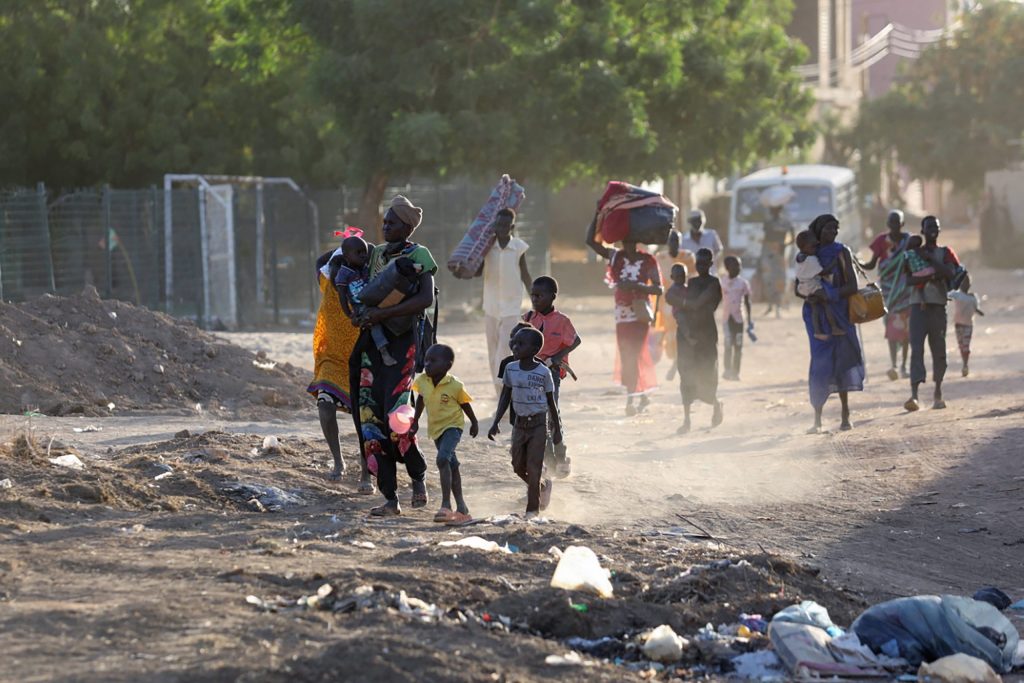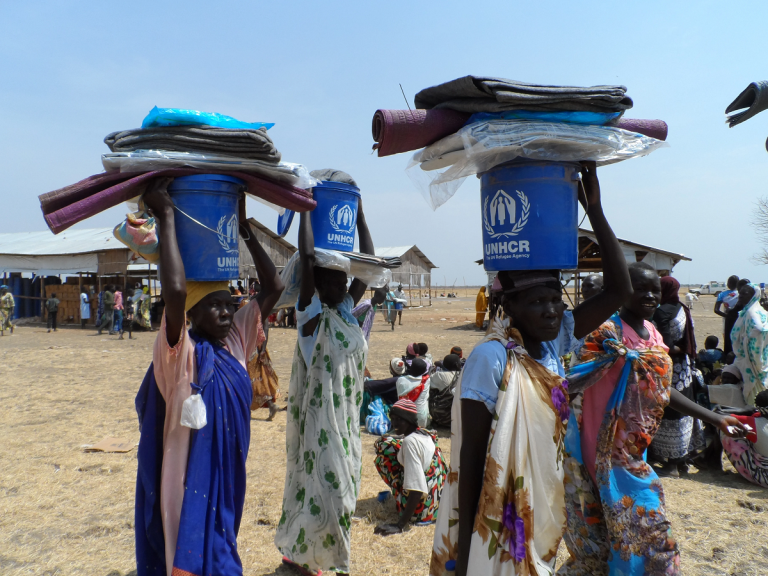Sudan is grappling with an intensifying famine crisis marked by widespread starvation, surging acute malnutrition, and mass displacement, according to a United Nations-backed food security assessment released on Tuesday.
Over 24.6 million people—half of Sudan’s population—are experiencing acute food insecurity, as reported by the Integrated Food Security Phase Classification (IPC), which monitors extreme hunger globally.
The IPC’s Famine Review Committee confirmed that famine (IPC Phase 5) has already taken hold in at least five areas, including North Darfur’s Zamzam camp and parts of the Western Nuba Mountains.

The crisis is projected to worsen, with five additional areas in North Darfur—Um Kadadah, Melit, El Fasher, At Tawisha, and Al Lait—expected to experience famine between December 2024 and May 2025. Seventeen other areas, particularly those with large populations of internally displaced persons (IDPs), are also at significant risk. These include parts of North and South Darfur, Khartoum, and Al Jazirah states.
A Catastrophic Collapse
“Famine is the most extreme manifestation of human suffering, representing a catastrophic collapse of the systems and resources essential for survival,” the IPC report stated.
“It is not merely a lack of food but a profound breakdown of health, livelihoods, and social structures, leaving entire communities in a state of desperation.”
While above-average rainfall benefited agriculture in some secure areas, ongoing conflict has devastated farming activities elsewhere. Farmers have abandoned fields, and crops have been looted or destroyed. Displaced families, particularly those in settlements, remain cut off from any benefits of the harvest.
Currently, 8.1 million people are classified in IPC Phase 4 (emergency), while 638,000 are already in Phase 5 (catastrophe). A further 15.9 million are in Phase 3 (crisis), characterised by critical food shortages or reliance on extreme coping strategies.
Conflict at the Core
The conflict, which erupted in April 2023 between rival military factions, has displaced over 12 million people—nearly a quarter of Sudan’s population—worsening food insecurity and overwhelming host communities.
Violence continues unabated in densely populated areas, with widespread violations of international humanitarian law. Civilians have been killed and injured in alarming numbers, while sexual violence is rampant. Essential infrastructure, including healthcare and education facilities, has been decimated.
Amid this chaos, deadly diseases such as cholera are spreading rapidly, exacerbated by the collapse of healthcare, clean water, and sanitation services.
Urgent Actions Needed
The IPC report stressed that an immediate cessation of hostilities is essential to prevent further deterioration of the crisis.
It called for the restoration of safe, unhindered humanitarian access, especially in conflict-affected areas, and a significant scale-up of multi-sectoral humanitarian aid.
Recommendations also included expanding treatment for acute malnutrition, providing essential agricultural inputs to vulnerable households, and conducting food security and nutrition surveys in unassessed regions to refine response strategies.


